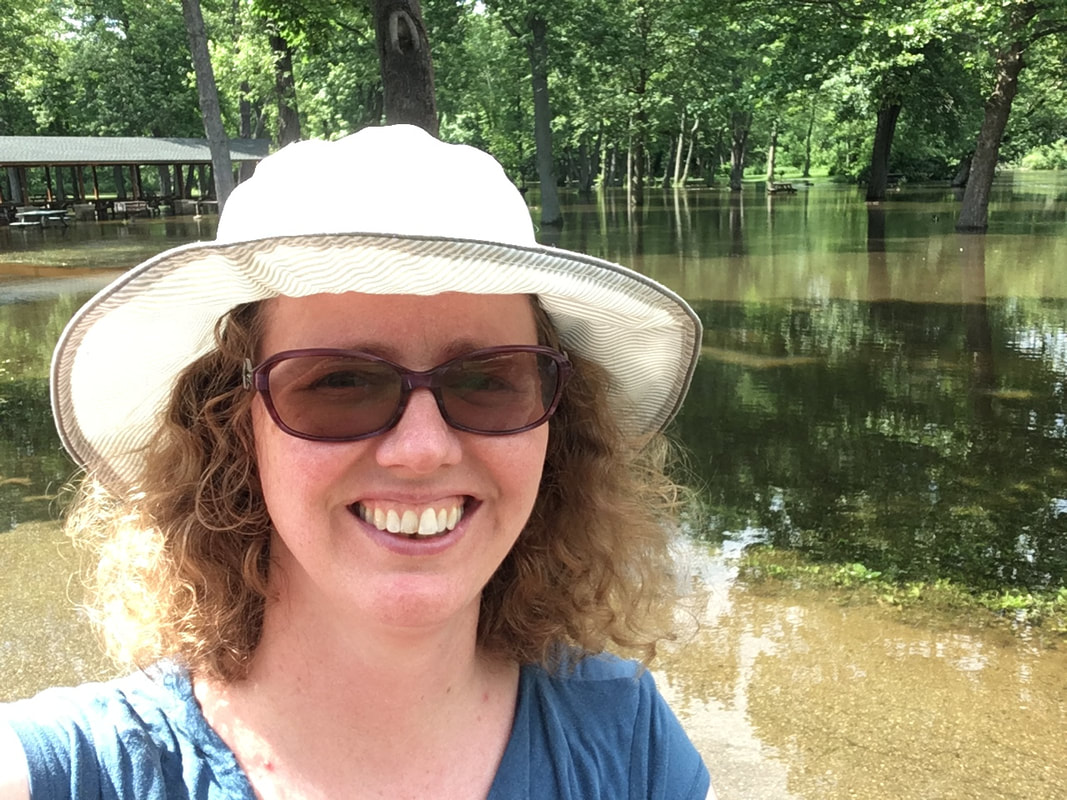To me, ecohydrology is the study of the interactions between living systems and the hydrosphere. These interactions could be happening within or because of a single plant, animal, or microbe or they could be ecosystem-scale or watershed-scale processes. Ecohydrology synthesizes concepts from hydrology and ecology to approach problems that can’t be understood from a single disciplinary perspective.
What are your undergraduate and graduate degrees in?
I have an undergraduate degree in Earth and Planetary Science from The Johns Hopkins University, a MS in Water Resources Science from the University of Minnesota, and a PhD in Geology from Oregon State University.
How did you arrive at working in/thinking about ecohydrology?
To some extent, I blame my mother! She is a retired plant ecologist, and she worked in environments ranging from salt marshes and floodplains to goat prairies (really neat dry prairie ecosystems found on south facing slopes along the Upper Mississippi River valley). So I grew up being exposed to ecological ideas and how ecosystems interacted with water. My own research adventures began with the 1993 flood on the Mississippi River, and my bent is more physical processes than ecology, but the interactions between the physical and ecological are everywhere I look.
For the last 10 years, my research has focused on water in human-altered environments, especially cities. I look at how stormwater management and environmental restoration alter partitioning of flow between the surface and subsurface, change flow regimes and erosion patterns, and alter ecosystem processes. Right now, I have a really cool project in Cuyahoga Valley National Park looking at how a restoration practice called deep ripping might enable reforestation of abandoned mine sites by changing preferential flow paths – and, in turn, how the young trees might start to influence soil development and hydrology as they become more established.
But it’s maybe only in the past few years that I’ve come to admit that I am (at least in part) an ecohydrologist. Participating in a HydroEco conference a few years ago really opened my eyes to ecohydrology as a broad tent of perspectives and approaches. I realized that I had a misconception of ecohydrology as this very narrow field, when, in fact, much of what I do could be considered ecohydrology,
What do you see as an important emerging area of ecohydrology?
I’d be remiss if I didn’t say urban ecohydrology! I think there’s a lot of really cool work starting to be done on hydroecological processes happening in cities – from how disconnecting downspouts alters net primary productivity to how planting street trees can help manage stormwater. That’s just two examples and I think we’re only beginning to scratch the surface of understanding how ecohydrological processes work in urban environments – and how we can use these processes to make our cities greener, healthier, and happier. As we start to weave engineered infrastructure and social systems into our ecohydrology research, I think we’re going to see lots of exciting ideas emerge.
Do you have a favorite ecohydrology paper? Describe/explain.
I’ve really been enjoying following the literature on “ecohydrological separation” or the “two water worlds.” These terms capture the idea that trees may not be accessing the same subsurface water as streams do and that when we sample stream water and infer catchment transit times, we may be missing a big piece of the story. I’m hoping that as my National Park trees get older, that I’ll be able to contribute more to this literature myself. But for now, I’ve got to point to the Brooks et al. (2010) paper (https://www.nature.com/articles/ngeo722) that did such a nice job of stimulating a decade of work.
What do you do for fun (apart from ecohydrology)?
I have two kids (5, 13), a partner, and a dog, and my family and I love hiking. I was on sabbatical in Colorado this fall and it was great to have new trails to explore every week. My 5 year old did 6 miles of gentle grade above 11,000 feet! We also like musical theater, museums, and other cultural activities – as well as just quiet days spent pursuing our own interests at home.
When I’m not spending time with my family, I really like mentoring students on research projects, creating interactive learning opportunities in my classes, and doing public engagement activities to share my love of science. I’ve also been trying to spend more time volunteering for causes I support.

 RSS Feed
RSS Feed